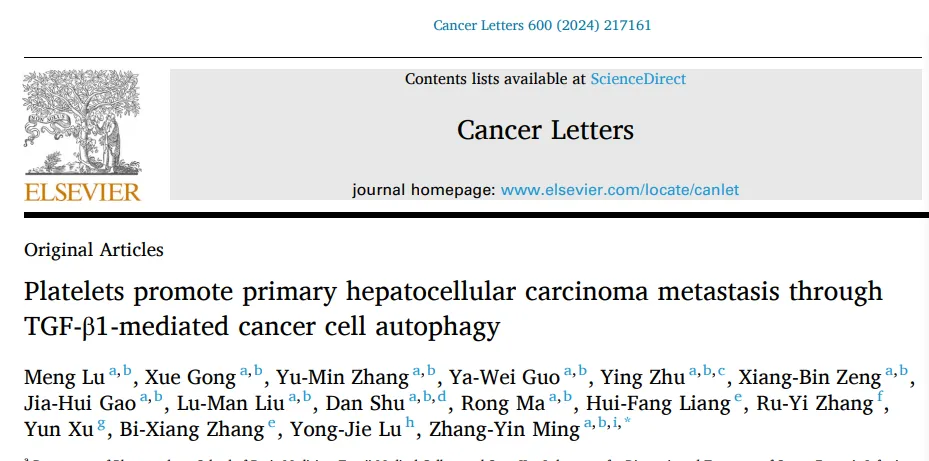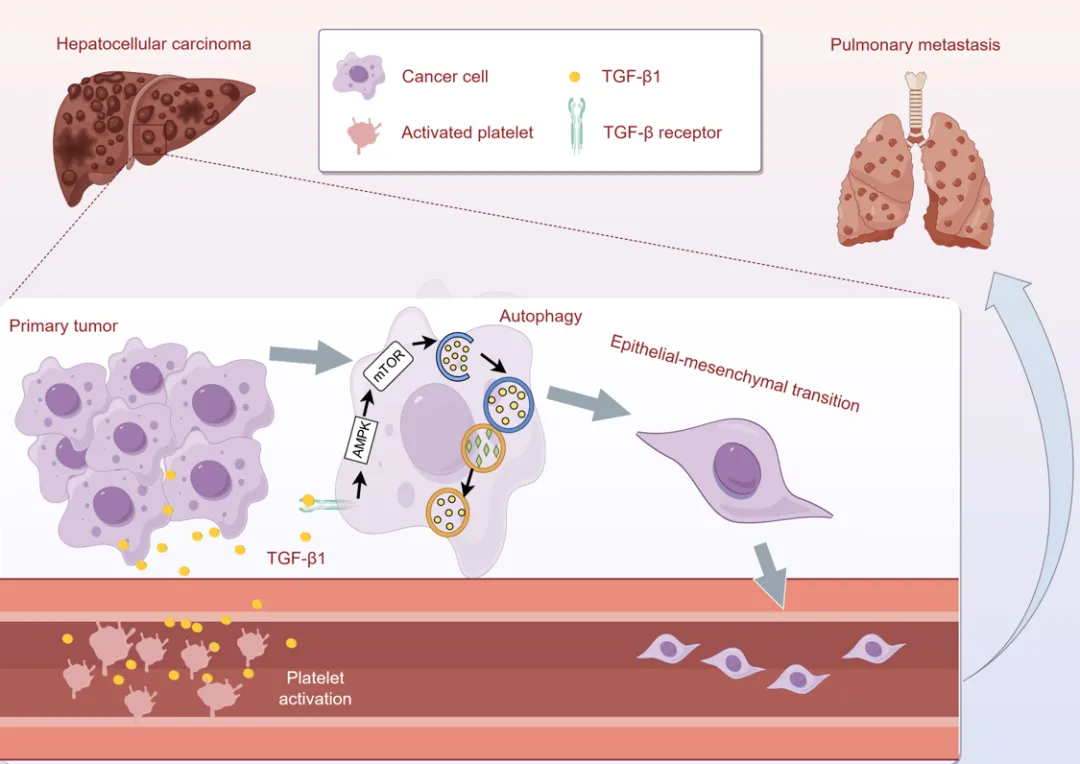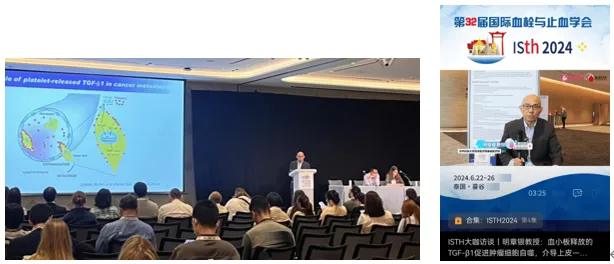Hepatocellular carcinoma (HCC) represents a prevalent malignant tumor, ranking as the third leading cause of cancer-related deaths across the globe. Despite therapeutic advancements, the 5-year survival rate of HCC remains at 18% due to high recurrence and metastasis rates. 18%. Understanding the mechanisms underlying HCC metastasis is crucial to the identification of new treatment targets. Recent studies highlighted the role of platelets in tumor metastasis, where they form aggregates with circulating tumor cells (CTCs), shielding them from blood flow shear stress and immune surveillance, and facilitating their extravasation to promote cancer metastasis.

A pivotal step in tumor metastasis is the epithelial-mesenchymal transition (EMT) of cancer cells, which allows them to detach from the primary tumor. The impact of platelets on EMT in situ tumor cells has not been previously reported, and elucidating this effect could offer new targets for liver cancer treatment.
On August 6, 2024, Professor MING Zhangyin's team from the Department of Pharmacology, School of Basic Medicine, Tongji Medical Collegeof HUST, published a study in Cancer Letters. Their study, "Platelets promote primary hepatocellular carcinoma metastasis through TGF-β1-mediated cancer cell autophagy," revealed that platelet-derived TGF-β1 induces EMT in situ tumor cells, thereby promoting HCC metastasis.

The research found that TGF-β1 released by platelets, a significant component of the HCC tumor microenvironment, triggers EMT through AMPK/mTOR-dependent autophagy, driving the HCC metastasis. In liver cancer patients, platelet counts positively correlate with TGF-β1 levels and the expression of CDH2 and LC3 in the primary tumor, suggesting that platelet-derived TGF-β1 could be a key target for curbing HCC metastasis.

The paper's lead author is LU Meng, a doctoral student in the Department of Pharmacology, with Professor MING Zhangyin as the corresponding author. The study was supported by the National Natural Science Foundation of China and HUST's "Interdisciplinary Research Support Program." Professor MING's team is currently looking at the platelet functions in diseases like cancer and cardiovascular conditions, aiming to inform the clinical management of the diseases.
